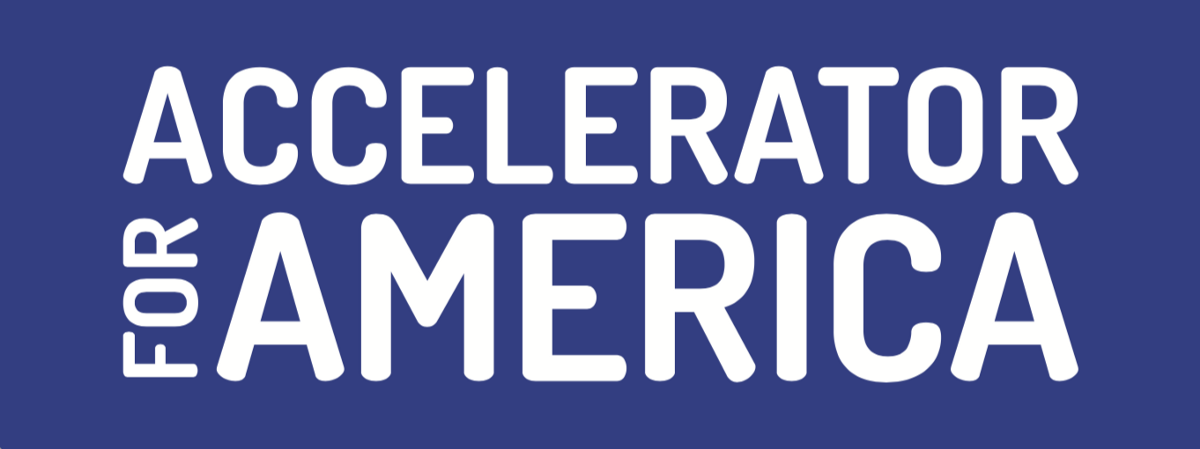AT CLINTON GLOBAL INITIATIVE, ACCELERATOR FOR AMERICA AND TOLEMI ANNOUNCE PARTNERSHIP TO HELP 11 U.S. CITIES WITH AFFORDABLE HOUSING CRISIS
AT CLINTON GLOBAL INITIATIVE, ACCELERATOR FOR AMERICA AND TOLEMI ANNOUNCE PARTNERSHIP TO HELP 11 U.S. CITIES WITH AFFORDABLE HOUSING CRISIS
Cities: Kansas City, MO; Albuquerque, NM; Austin, TX; Birmingham, AL; Chicago, IL; Dayton, OH; Lansing, MI; Philadelphia, PA; San Diego, CA; Tampa, FL; Tucson, AZ
NEW YORK CITY – At the Clinton Global Initiative (CGI) 2023 Meeting today, Accelerator for America CEO Mary Ellen Wiederwohl and Tolemi CEO and Co-Founder Andrew Kieve announced a commitment to supporting 11 American cities by providing no-cost access to an analytical tool and peer learning cohort to provide insights into local real estate markets.
Cities will leverage these resources to preserve and build affordable housing, keep families in their homes, combat predatory private sector investments, and ensure publicly-owned real estate is utilized for the highest possible community benefit. Today, cities have multiple data sets and systems related to real estate but often lack the tools and capacity to aggregate and visualize information for strategic local action and investment.
CGI brings together established and emerging global leaders to create and implement solutions to the world’s most pressing challenges. CGI works with partners to develop Commitments to Action — new, specific, and measurable actions in climate resilience, health equity, and inclusive economic recovery and growth.
“By identifying where housing can best be preserved and built and focusing on which owners are disproportionately contributing to housing destabilization, we can help cities focus on concrete action plans to keep families in their homes and build more quality attainable housing,” said the Accelerator’s Wiederwohl. “Cities are experiencing the housing crisis in different ways, but in one way or another, the entire country is affected, which is why this commitment is a critical area of focus for Accelerator for America.”
“Housing markets have undergone a series of dramatic shifts starting with the 2008 foreclosure crisis and followed by the influx of institutional investment into single-family rentals,” said Kieve of Tolemi. “Local governments are inundated with data that can help their understanding of these changing conditions, but connecting the dots across siloed departments and agencies is a real challenge. By giving city leadership better information on property, ownership, and neighborhood dynamics, we can build their capacity to react to and anticipate the forces that increase instability and decrease affordability.”
“The partnership between Accelerator for America, Tolemi and leading American mayors represents the type of collaboration across the public and private sector that we need in order to take advantage of this generational American investment in place-based economic development”, according to Nish Acharya, Senior Fellow for Inclusive Economic Recovery and Growth (IERG). “We look forward to helping find additional partners interested in this great project”.
The BuildingBlocks tool connects property and ownership data from disparate sources and uses machine learning to deliver insights that enable better decision-making around land use, affordability, and neighborhood revitalization. Leaders of participant cities will meet regularly to share experiences and identify findings and strategies that can be widely adapted to address the urgent need for more affordable housing and inclusive home ownership opportunities across the United States.
All 11 participating cities plan to use these data insights and peer learning opportunities to advance the development of more affordable and equitable housing. Many of the cities have put forward ambitious visions to address the housing crisis in their communities, and these new resources through Accelerator for America and Tolemi will support their ability to execute their strategies. City leaders are seeking to engage responsible private market partners to redevelop public land and to ensure that they are addressing the broad range of housing needs across the income spectrum in their local markets. Cities also want to ensure that existing homeowners and renters have the right protections in place to be able to stay in their homes. The technology and peer network created by this initiative will allow each city to work more effectively toward their existing strategies across departments, and will foster the sharing, scaling, and replication of promising new ideas and models across the country.
